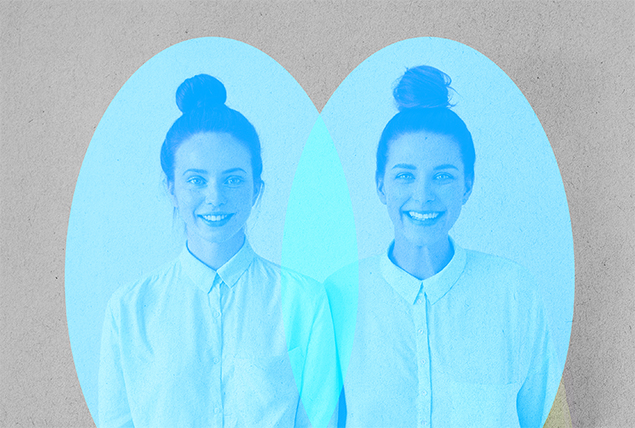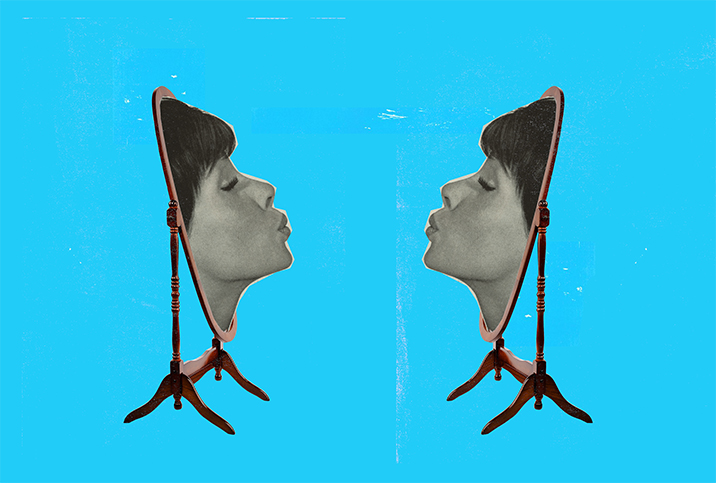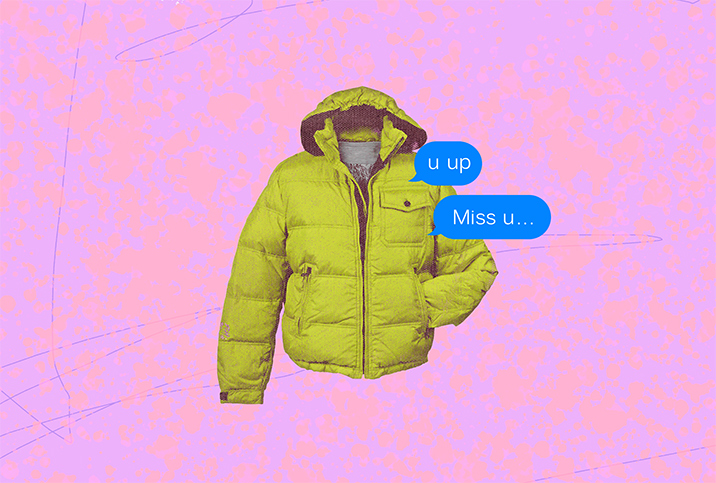I Keep Dating the Same Type and It Never Works Out. Is It Me?

If all the guys I dated appeared in a police lineup, you'd have a difficult time telling some of them apart. They'd all kind of look like singer-songwriter John Mayer in various stages of his career (if you squinted, that is).
"It's very common to have a 'type' when dating," said Jessica Alderson, a relationship expert in London and a co-founder of So Syncd, a personality-based dating app. "Having a type is essentially a way of narrowing down the vast number of people who could potentially be compatible with us."
Our types help us know what we want when we're swiping through dating apps, or in rare cases meeting someone—gasp—in real life.
However, if you find yourself dating the same type of personality over and over, and the relationships never work out, then you might have a problem. For me, my emotional type was love bombing, hot and cold, narcissists.
(And, spoiler alert in case you were wondering, that's not who I married.)
As Albert Einstein once said, "Insanity is doing the same thing over and over again and expecting different results." But isn't that just like dating the same type of person—"your type"—again and again and expecting it to work out this time?
I agree with Einstein. It's kind of insane. So why do we keep doing it?
Why do we have types?
Our dating type is usually inspired by programming from our childhood.
"Perhaps [we are] subconsciously looking for someone who's like one of our parents, or for someone who reminds us of our first crush," said Taylor Carr, a Los Angeles-based femininity coach who specializes in love, dating and relationships for women.
"Our relationship with our father determines what 'type' of man we're attracted to," said Carole Lieberman, M.D., a psychiatrist in Beverly Hills, California, and the author of "Bad Boys: Why We Love Them, How to Live with Them and When to Leave Them." "If we have a loving relationship with dad, we feel we're lovable and deserving of a 'prince.' But if we have a dysfunctional relationship with dad, we feel we're unloveable and find ourselves attracted to a bad boy who is a heartbreaker."
If you had a traumatic childhood, you might find yourself drawn to dysfunctional relationships as an adult with the hope of things working out this time.
The Austrian neurologist and the founder of psychoanalysis, Sigmund Freud, had a theory of repetition compulsion that recognized this behavior. It was the desire to return to an earlier state of things, which he used to explain a person's inability to discuss or even remember traumatic events from the past, which may lead to them repeating those traumas compulsively.
And that certainly explains why dating a type of person over and over might become toxic.
"If someone grew up with a parent who was emotionally unavailable, they may be attracted to partners who exhibit similar traits," said Martha Tara Lee, D.H.S., a relationship counselor and clinical sexologist with Eros Coaching in Singapore.
Having a type can be healthy, too
Of course, based on the fact we should never say never, having a type isn't always a bad thing.
"It is not toxic to have a type," said Samantha Grimes, L.M.F.T., a relationship specialist and licensed marriage and family therapist in private practice in Tustin, California. "People are allowed to have preferences. That's the upside of the apps is that you can literally select [the] type of person you desire to date."
If your type is based on positive qualities that align with your goals and values, this can help you find people you actually can have a future with if you're looking for something serious.
"If someone is looking for a partner who is kind, intelligent and shares their interests, having a type can help them narrow down their search," Lee said.
Of course, having a type can be healthy and efficient in the world of dating apps, but it could prove limiting.
"It can be detrimental to be completely set on having a specific type when dating because it can lead to tunnel vision," Alderson said. "When you are adamant about only dating people who fit your type, it can limit potential connections."
She added that being aware of your choices can prevent you from having too narrow, rigid, superficial or specific expectations of a type you're looking for and potentially missing partners who could be great matches for you.
"It's all about the balance between being self-aware enough to know what you're looking for but also staying open to possibilities," she said. "Even if you know you have a type, you should be open-minded because you can end up surprising yourself and falling for someone unexpected."
Is your type trouble, or is it you?
Having a type can be unhealthy if your type is toxic, such as if you find yourself attracted to people who can only be described as trouble.
"If you notice you're drawn toward intensity and chaos—also known as 'the bad boy'—you might be replicating past trauma and could be retraumatizing yourself in the process," Grimes said. "These relationships might increase low self-esteem, poor boundaries, lack of trust and low emotional awareness."
At the extreme, she added, this could be dangerous and abusive.
"If you keep dating the same type and you keep getting your heart broken, then you need to wake up and ask yourself why," Lieberman said. "You may be afraid of commitment, so you're drawn to a heartbreaker because deep down you know it's not going to lead to anything serious."
Since the most important relationship you have is the one you have with yourself, you might want to look inward if you find yourself caught in toxic patterns while dating.
"If you notice you're drawn to 'fixer uppers' or people you feel bad for, it might elicit some co-dependency traits within you," Grimes said. "This may call for self-abandonment and unrealistic expectations of self and others and that might lead to resentment and control."
The perks of breaking your patterns
"Are you dating the same type of person? Or is it you who is the same type of person from one relationship to the next?" Breaking the cycle or pattern of toxic relationships begins by examining and evaluating ourselves," said Jerry Brook, an author, speaker and app developer in Houston. "Face it, the one thing that all of your relationships have in common is you."
If you think you need to break up with your type and shake up your dating patterns, you may be right, but it takes time and effort.
"You might find yourself slipping up every now and then, but don't be discouraged," Alderson said. "It can take time to change old habits, so be patient with yourself. With the right attitude and effort, you can break your patterns and find the fulfilling relationship you are looking for."
I finally broke my own pattern of dating unavailable men before I met my husband, and I can't recommend it enough. Being in a relationship with someone who made my life easier instead of more complicated felt weird at first. Almost four years later and still very happily married, though, I'm thrilled I finally quit my toxic type.
"Many of my clients find themselves in positions where they begin to rewire what attracts them, because they don't love their results from the past, and their type begins to change," Carr said. "They end up with partners who didn't fit their original type but are so much happier now."


















